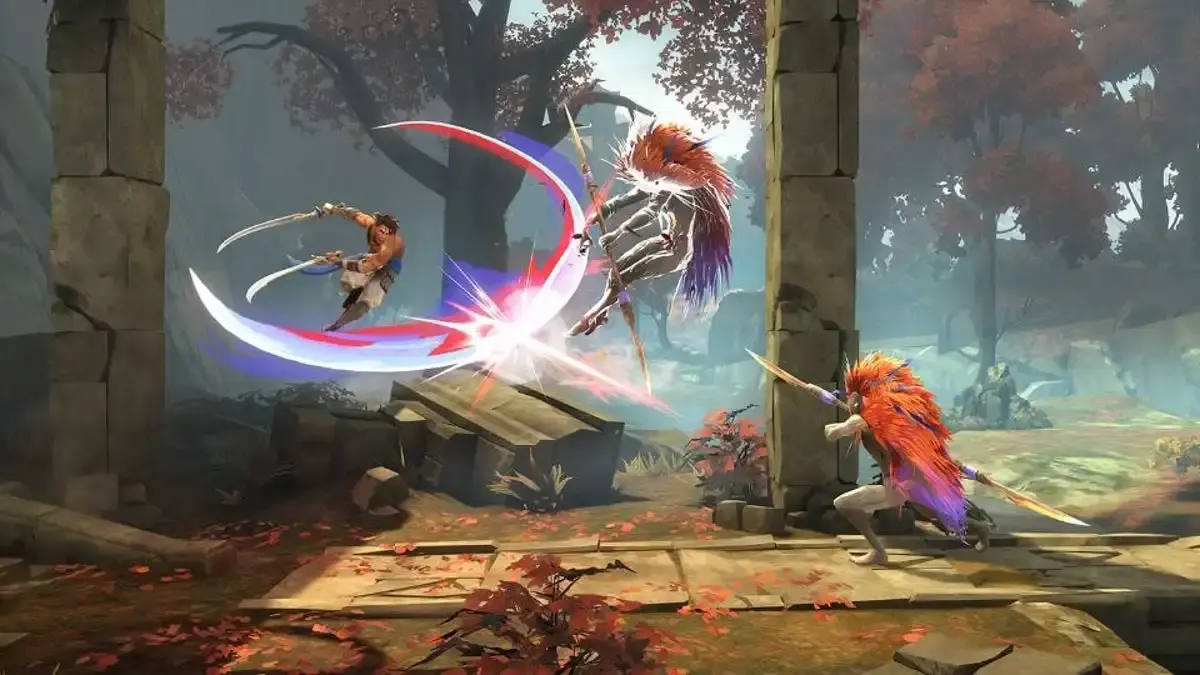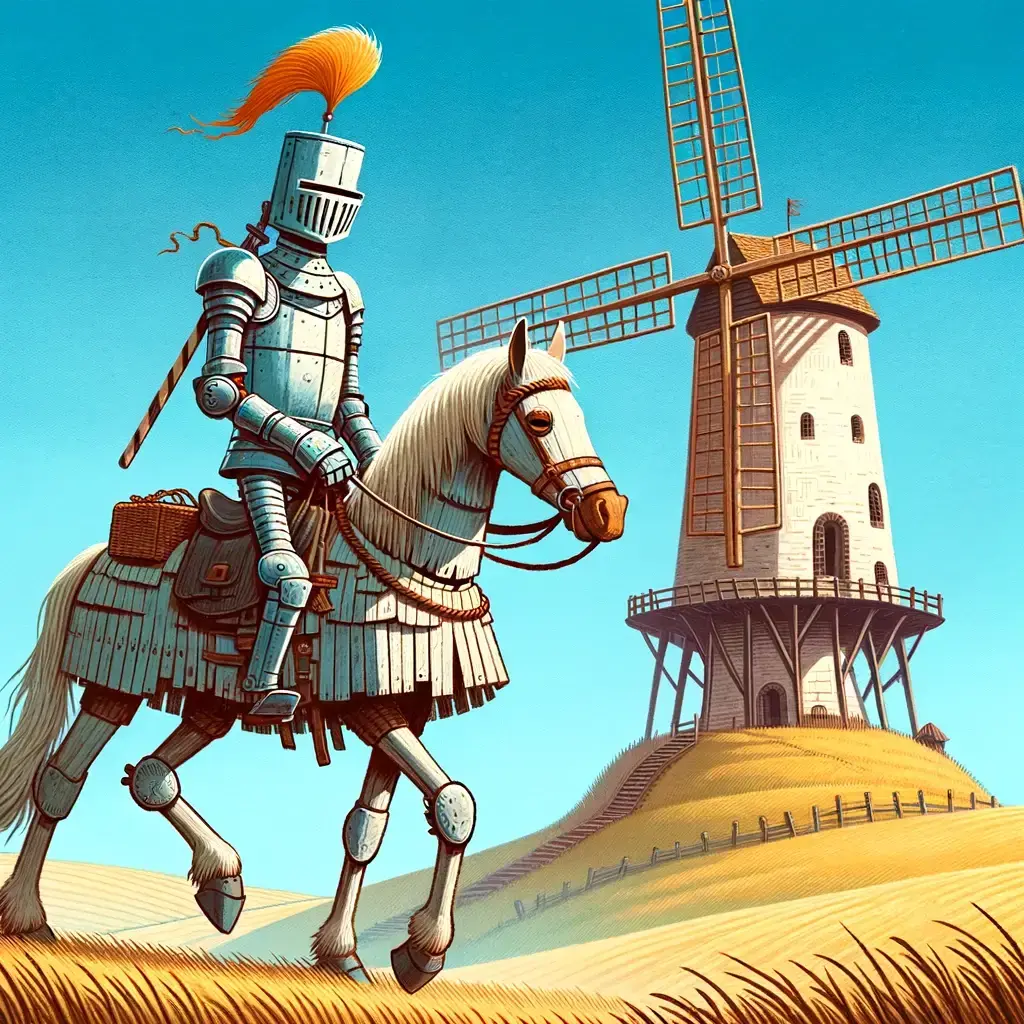- cross-posted to:
- [email protected]
- [email protected]
- cross-posted to:
- [email protected]
- [email protected]
I am very comfortable with never owning a ubisoft game ever again.
Same
I for one am quite comfortable not giving them any more of my money either.
They added DRM to a more than ten Year old game I had bought. I’ll never purchase another ubisoft product without then heading to the high sea to get a uncrippled copy. Odds are, I’ll just not bother.
I’m comfortable not owning their games. In fact, I want their games as far away from me as possible.
So long as they are comfortable with me never buying them.
For most games, I’m fine with renting my games. If they charge a reasonable continuous rental fee and not a crazy one-off price that will make the game available for some unspecified amount of time at the publisher’s discretion. For example, I could imagine paying $2 / month to play Assassin’s Creed. And if it turns out to be boring I can just stop renting it.
I’m with you. It’s hip to hate on Ubisoft, but I’m of the impression that subscription based gaming has already gained traction with Game Pass. The article is spot on though when the author remarks that Ubisoft offering their library at 18$ a month is a hard bargain. Especially considering Game Pass is currently at 10$ a month… and includes Assassin’s Creed Valhalla, Origins & Odyssey.
For this to work it would have to be like, hourly or minutely billing. This takes care of the multiple games issue as you’ll likely never play more than one at a time and don’t pay for the time you don’t play it that month. You can try a game for a few days or a week and stop playing and also stop paying. You can try some indie games because you’d only be spending $0.05/hr or something.
Or you just have to include a whole library of games like Game Pass or access to all of Steam or something which would allow you to hop games yet not own them.
I’d still want to be able buy games I intend on playing for years (like Skyrim or Civ or City Skylines). So maybe a “rent to own” scheme would be cool.
I wish rent-to-own was a more common model. Unfortunately the only examples I know of in real life involve customers paying several times the retail cost of the items they rent before they actually own them.
What I’d really like to see is a system that keeps rental and purchase prices roughly where they are, except that once you’ve paid rental fees equal to the purchase price, it counts as a purchase. That would relieve me of having to guess whether I’ll be using something enough to buy it, and I doubt it would hurt seller’s profits.
For digital goods you would be right about sellers profits (to a degree, discarding the minuscule amount of interest the money of your purchase could accrue), for physical the use does degrade the worth faster so the seller would loose out.
So you’ve had the game for 3 years and you’ve now payed more than the retail price. Are you going to keep paying for it, or do you expect it to be “yours”. Also, as with most things digital, let’s say you invest a hundred hours, almost get to the end and…. They decide to yank the game from their service. No ending for you. Thoughts on that? Both are very real scenarios by “renting” the game.
To be fair nobody plays *JUST one single game for 3 years. Economically speaking it is more affordable to pay the subscription than to buy it. That said there are no guarantees they won’t raise prices. I wouldn’t be surprised if they eventually decide to include ads and add limits eventually. There’s not even an expectation of control by the users.
But we have seen enough of how streaming libraries change and split. Losing access to your favorite game is an almost inevitable eventuality.
Skyrim, Fallout 4, RDR2, Witcher 3, The Sims, Dark Souls, Civilization, Borderlands 1/2, Stardew Valley, Persona…
Just because you can’t see it doesn’t mean there aren’t people that come back again and again between games to dust off an old favorite. While I personally never touched Fallout 4 again after beating it, I’ll break out my XBox 360 and give New Vegas a whirl to see what character concept I’ll try this time.
You are confusing my argument. You listed me 10+ games. If you paid $2/mo for 3 years and got to own a game for it, that would be enough for a couple of them at most. I’m not saying old games are not worth playing. I’m saying that if you had to pick between buying all the games you like or paying for a subscription, most likely the subscription would be more affordable. Because ultimately you played more than a single game.
To be fair nobody plays just one single game for 3 years.
Where’s the confusion?
In your example, you are not playing only one game for 3 years without playing any other games.
Yes. I am explaining that the opposite value of that statement doesn’t go far enough.
The confusion is that the implied conclusion is
To be fair nobody plays just one single game for 3 years (they play multiple)
rather than
To be fair nobody plays one game for 3 years (they are too old)
The former complements the following argument regarding how costly buying vs subscribing would be. The latter doesn’t work with the following paragraph that lists the unreliability of subscription libraries as a downside.
I never mentioned age. I mentioned games that are played for thousands of hours. Meaning that the value of those games far exceeds the value of the subscription. Furthermore, then the subscription ends (including when pulling games that are too old) and you are left without the game you have been sinking an incredible amount of time into just because some suits determined that not enough people play X game to warrant providing server space.
deleted by creator
Got numerous friends that prove you wrong.
I play single games for years with a bit of other games mixed in. I played Diablo 1, 2 and 3, World of Warcraft (already a sub, of course), Minecraft, and Skyrim for many years each. You could maybe put Team Fortress 2 in there but I didn’t continue going back to that well nearly as long as the others - I hate lootbox shit and I miss the days when skill and strategy was the only difference between players. I would totally play TF2 vanilla, though.
I’m sure I will continue to play Diablo 3 (4 does nothing for me) and Skyrim for years to come. So we do exist, however we are probably an unknown and unserved group since we don’t tend to pour a bunch of money and time into new games. I do have 800 hours into Baldur’s Gate 3. I’m going to regret having that on console instead of Steam, I’m sure. Probably wind up buying that one twice.
You’ll lose access to games by virtue of lack of support. Systems will change, libraries and dependencies will fall out of sync with requirements, and “the games you love” will be forgotten by devs (though not in all cases).
I used to play a really fun game on MacOS (pre-X) called Glider Pro. There was no easy way to play it, since you’d have to emulate a MacOS 9 system. Only recently did the original devs upload the files to GitHub and open the source. Some smart people then forked the repo and made it playable on various systems.
And that’s just one game. Lots more are now lost to time, and yet we’ve all collectively been able to continue gaming.
This sort of argument is just a way to cope with the erosion of customer rights and the overreach of corporations over digital media as if that’s some inevitable entropy of the universe type of thing. We still have books that are thousands of years old, but even though we have better technological means to store and reproduce media than ever, arbitrary legal hurdles are leading people to treat cultural loss as an inevitability.
You got your answer in your own response. Emulators are a thing. Virtual Machines are a thing. Proton is a thing. We figured out how to recover games going as far back as the Atari. Unless actively and fiercely obstructed people will figure out how to keep these things available out of sheer passion and goodwill.
A DRM-free installer/executable for a game, when properly backed up, will still be playable most likely indefinitely.
Unfortunately, as the mention of DRM itself indicates, obstructions are plentiful and ever increasing. This is why supporting DRM-free media and open platforms is valuable. Can you imagine what people could do if they were empowered instead of obstructed?
I’m old enough to remember a time before DRM. My point wasn’t that it’s not valuable to fight for consumer rights, but that some software will inevitably be lost in spite of efforts to preserve it.
It’s not an erosion of consumer rights, so much as it’s accepting that time comes for us all; hell, I have countless games I’m never going to revisit, and neither is anyone else. Does it truly matter that I own them, if I know I’m not going to play them again?
To be clear, I’m not proposing this model for everything in life, but where games are concerned, I think there’s a lot of collectors and archivers who think they speak for people like me, and I’m really just along for the ride.
With the means that we have, that anywhere in the world a dozen people can figure out how to get very niche things adapted in one way or another into different systems, and countless people can keep media on thumb drives rather than needing entire climate controlled libraries, something has to be very, very, extremely obscure for it to be completely lost, and even then there are people for which the obscurity of something is the very thing that makes it appealing.
I don’t think you are technically incorrect to some extent that some things will inevitably disappear, but I would still scratch it far more to imposed legal and technical restrictions than to the futility of fighting time.
Say, every single online or mobile game that closes and is completely lost? It’s 100% on the erosion of customer rights, exclusively. We have today the technology to keep them running and people willing to do it. It’s just that business and contracts defined that, no matter how much people have spend on them, they don’t get access to essential server files necessary to keep it running. This is not “time coming for us all”, it’s selfish businesses enabled by a law with no regards for cultural preservation.
Meanwhile the MAME project year after year figures out how to run incredibly niche arcade titles from decades ago. Even with all the challenges and obstructions.
Really, take a moment to really admire, that with all the struggles and limitations that we have, you as an individual human being, can with a handheld device, access and personally store thousands of Public Domain books from the Gutemberg Project, the entirety of Wikipedia, several full collections of every single game released for multiple consoles, including prototypes, hacks and homebrew. A single person can do that much. Ozymandias’ statue may crumble to dust but his history lives on, in someone’s pocket.
Maybe to you all that effort is pointless. Maybe it’s be easier to just let it go. But there’s a whole world of other people who might be interested in it. Maybe you just care about one single game. But a different person cares about a different single game. In a world of billions, how many different things might people care about?
If you talk to me about the inexorable advance of time, I’ll still be on the side of the indomitable human spirit.
I think there’s world enough for us all. And that is the indomitable human spirit I can get behind!
I think renting should be renting, and purchasing should be purchasing. I’m okay with renting and what that entails (e.g. they might remove the service in the future and I won’t ever own the game). I’m also fine with buying games, and for some games that have a lot of sentimental value or replayability I do want to own them.
What I’m not okay with is the current state of affairs, where they make it seem as if you buy the game and you pay full price, but legally it’s only “licensed” to you and the license can be revoked at any time. It’s all the disadvantages you describe with renting, but with the price of buying. So that’s what I had in mind with my comment: I’d be content instead of angry if they offered a rental service with honest terms of service and a fair price, instead of the bullshit they’re pulling right now.
If there was a proper rental service I would likely rent a lot of games that I wanted to try out. Then I would go to GOG to buy DRM-free versions of the games I want to keep for a long time. Games like Civ5, RimWorld and Cyberpunk 2077. I think I wouldn’t need to rent a game for three years to figure out that I want to buy it, more like a month.
I’ve said before that being a PS Plus subscriber has changed the types of games I play by making indie games more accessible to try, with low stakes. Prior, I usually reserved my funds for what I assumed was the biggest bang with AAA titles.
There’s value there with having a library of games to just try out. That being said, the trajectory of subscription services generally and “digital ownership” (see Playstation’s recent Discovery kerfuffle) is really concerning.
I think Ubisoft’s mindset here is on the wrong track (surprise…). Luckily, as others have said, there’s not a lot of temptation here for Ubisoft’s modern library (Prince of Persia being an admitted exception).
Companies claiming you don’t own your games are admitting that piracy isn’t stealing
I think this model can work, and has its benefits (like with Game Pass). To be clear though, Ubisoft’s offering is shit and not worth the price they’re asking. And one thing I absolutely hate is the (sometimes timed) exclusivity on some of these platforms. The Lost Crown looks great for example, but Ubisoft are trying to force people to use their service by not offering it on Steam.
Personally I don’t really mind not ‘owning’ the game in most cases. 9 times out of 10, I’ll play a game and be done with it. Short, linear indie games for example are perfect for a Game Pass type model. What we don’t need is 10 similar subscriptions with their own exclusives.
This. I already don’t own my music (Tidal, Spotify) or my movies (Netflix, etc) and I already have been using Gamepass for years just fine.
But movie streaming is a HOT MESS right now. I looked up the X-Men movie franchise the other day for some reason. No joke, it’s split across 3 or 4 different streaming services! And next month, it could change. There are streaming services like Peacock or Paramount that have absolutely NOTHING worth watching except one or two shows (e.g. Parks and Rec or Picard) and I really want to watch it but there’s no way I’m throwing down money for a streaming service just to watch one fucking show. All it does is piss me off.
If the same garbage happens with gaming where everyone thinks making their own is the way to go, instead of just using a few big ones, it will not succeed. Ubisoft making their own is a bad idea. It’s bad for us for the reasons above and it’s bad for them because we won’t use it.
But movie streaming is a HOT MESS right now. I looked up the X-Men movie franchise the other day for some reason. No joke, it’s split across 3 or 4 different streaming services!
Dunkey made a pretty hilarious video about this a few days ago.
The Pokémon bit was especially funny.
It’s funny that he mentioned Spiderman and John Wick, two other examples I was thinking about mentioning because they came up recently.
The Pokemon bit ending with “Easy.” was solid. :-D
They’ve tried and failed multiple times before. They refuse to learn.
You have the same problem with Steam already for years… I mean you do not have a physical copy anymore. In fact if Steam is down, you might not be able to download, play or play multiplayer. So you own nothing and be happy - WEF.
And people think I’m crazy for buying physical discs of movies and having 20+ hdds spinning
I did thought you were crazy in the past indeed. Since digital is the future, right? It might still is, but for some reason all game studios, producers and distributors like ubisoft or steam just create bad software/games. Where you need 24/7 internet connection and doesn’t allow you to own a digital offline copy of the product. It’s not just games.
That is crazy. Why not upgrade to SSDs instead of HDDs?
Cost per GiB is higher and long term reliability is lower in most scenarios.
The failure scenarios for spinning rust tends to work better with large storage arrays as well.
Not all absolutes, but enough of them are true on a common enough basis that spending the extra on SSD’s isn’t usually worth it.
If you want some real in depth explanations there’s probably a datahoarder community somewhere or reddit if you are so inclined.
https://www.redswitches.com/blog/ssd-vs-hdd/
This looks like an okay analysis.
I can get a 20tb HDD right now for $300. When I am talking about 100s of TBs it makes a difference
Steam is different, though; many games have no DRM and even more just have Steam’s DRM that’s already been cracked globally and is super quick to patch. They also maintain access to paid games even after they’re delisted.
AFAIK, the only problems with maintaining access to Stream games are software-as-a-service games when servers go down (MMOs and multiplayer servers, basically) and music with expired licenses (fuck the RIAA and copyright law for that one; not much Steam can do about that.) I have many delisted games in my library and I can download them any time I want.
Sure, Steam could go down, at some point. Maybe. But it’s not a big concern.
deleted by creator
Nope… Some games will fail to start if the “main” server is down or some authentication server or whatever server it nowadays might depend on. So even if you install a game now and let it rest of years, the changes it will start again over 10 years is very low. I’m not even talking about multiplayer, since multiplayer will be definitively broken by then. And LAN features are no longer implemented by game devs.
I do agree that gamepass will only make matters worse.
deleted by creator
Some games might work fine, I mentioned “some” game will fail. Especially if they require you to login first to some kind of auth. server.
Most digital gaming stores are, except GOG and ItchIO. Even consoles are trying to push things that way. XBox has Game Pass and Playstation released a version of their console with no disc reader. Subscriptions may seem more fleeting that digital purchases but in actuality we’ve seen how companies can take down purchased media and entire digital storefronts.
I have purchased more Steam games than it would be sensible but as companies lose any qualm to take purchases away from customers, if anyone wants any any guarantee of ownership they really need to buy DRM-free and back them up independently.
Games using Steam’s DRM, have the benefit that if Steam ever goes down, there would be a massive amount of people interested in breaking it to free all the games at once.
It actually happens all the time, but Steam can roll out new “patched” versions of the DRM as long as it stays in business.
They are also aware of this, and even have promised to release a DRM bypass if they’re ever about to close shop… but in practice it wouldn’t really matter; whatever last version of the DRM they ever release, will get broken in record time.
I think more likely than Valve going under is Valve getting bought or going public. Both would result in the new owner (a megacorp in their own right, or greedy shareholders, respectively) turning the system into shit to squeeze more money out of it. And new DRM would be foisted onto the system regardless.
That’s a possibility. Then again, Steam games are getting stripped of DRM right now (and possibly enhanced with some malware), so the moment the value proposition of just installing Steam and not having to do anything else goes down, it’s likely for generic DRM strippers to appear, at least for older versions.
I have stopped giving even the slightest fuck about Ubisoft games. There are way more games than I have time. It’s just another filter for what to play next.
The only ubisoft game I still care about is Anno 1800
I own all my plunder, yarr
One downside of always-online DRM is that it kind of deanonymizes you. I mean, the game retailer knows that a given person is at a given IP address at a given time, and that information has value that could be used down the line to combine with other sources of data.
Avoiding that would require something like a VPN system that uses a different IP for different services.
Why does that matter for a game?
It doesn’t matter any more than any other individual data point. The concern is that when all the data points are collated, it gives a LOT more information about someone than many people realize.
It’s not the game in particular – it could be any service that one makes use of over extended period of time. The issue is that one can correlate with other data.
And i want Ubisoft to be comfortable with me pirating every single one of their games
spoiler
even though i still never play them because most of them are shit
deleted by creator
The only “legal” thing you can do




















